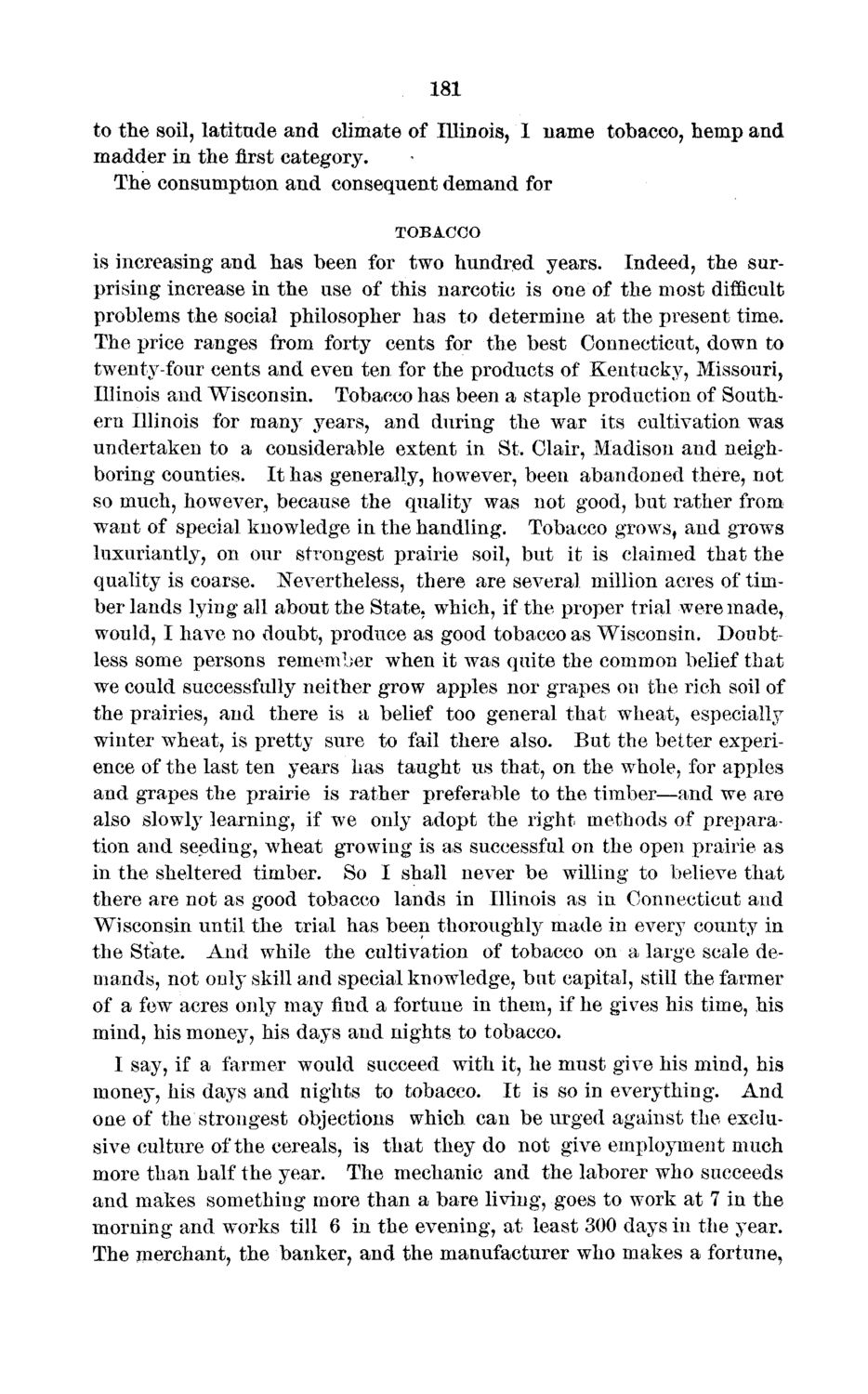| |
| |
Caption: Board of Trustees Minutes - 1873
This is a reduced-resolution page image for fast online browsing.

EXTRACTED TEXT FROM PAGE:
181 to the soil, latitude and climate of Illinois, 1 name tobacco, hemp and madder in the first category. The consumption and consequent demand for TOBACCO is increasing and has been for two hundred years. Indeed, the surprising increase in the use of this narcotic is one of the most difficult problems the social philosopher has to determine at the present time. The price ranges from forty cents for the best Connecticut, down to twenty-four cents and even ten for the products of Kentucky, Missouri, Illinois and Wisconsin. Tobacco has been a staple production of Southern Illinois for many years, and during the war its cultivation was undertaken to a considerable extent in St. Clair, Madison and neighboring counties. It has generally, however, been abandoned there, not so much, however, because the quality was not good, but rather from want of special knowledge in the handling. Tobacco grows, and grows luxuriantly, on our strongest prairie soil, but it is claimed that the quality is coarse. Nevertheless, there are several million acres of timber lands lying all about the State, which, if the proper trial were made, would, I have no doubt, produce as good tobacco as Wisconsin. Doubtless some persons remember when it was quite the common belief that we could successfully neither grow apples nor grapes on the rich soil of the prairies, and there is a belief too general that wheat, especially winter wheat, is pretty sure to fail there also. But the better experience of the last ten years has taught us that, on the whole, for apples and grapes the prairie is rather preferable to the timber—and we are also slowly learning, if we only adopt the right methods of preparation and seeding, wheat growing is as successful on the oj)en prairie as in the sheltered timber. So I shall never be willing to believe that there are not as good tobacco lands in Illinois as in Connecticut and Wisconsin until the trial has been thoroughly made in every county in the State. And while the cultivation of tobacco on a large scale demands, not only skill and special knowledge, but capital, still the farmer of a few acres only may find a fortune in them, if he gives his time, his mind, his money, his days and nights to tobacco. I say, if a farmer would succeed with it, he must give his mind, his money, his days and nights to tobacco. It is so in everything. And one of the strongest objections which can be urged against the exclusive culture of the cereals, is that they do not give employment much more than half the year. The mechanic and the laborer who succeeds and makes something more than a bare living, goes to work at 7 in the morning and works till 6 in the evening, at least 300 days in the year. The merchant, the banker, and the manufacturer who makes a fortune,
| |